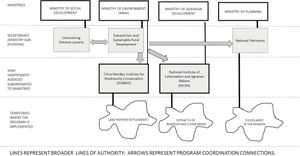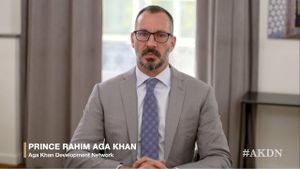Olaf Scholz is rallying public support as he intensifies his campaign for the upcoming German elections set for February 2025. The Federal Chancellor recently engaged citizens at town hall meetings, aiming to bridge connections and share his vision for the country as he leads the Social Democrats (SPD) through what polls suggest is shaping up to be one of their most challenging electoral battles yet.
During a recent event in Lübeck, Scholz emphasized the need for balance in government, countering opposition claims with remarks like, "We need to manage the important issues for our country simultaneously." He criticized rival CDU’s plans to relieve the wealthiest 10% on their taxes, calling it inappropriate for the current socio-economic climate.
Stirring discussions abounded as around 400 participants filled the hall, eager to question the Chancellor on pressing issues such as energy transition, defense, and the impact of the Ukraine crisis. Scholz comfortably addressed doubts surrounding his leadership style and party direction, explaining his approach to welfare and how it intersects with economic sustainability. "I believe cuts to social benefits are not the answer; we have to think of the future," he asserted during the discourse.
Scholz has not only been presenting policies but also has been working diligently to reshape his public persona. Observers noted he tried to project more empathy than previously criticized, asking the audience to treat him informally, signaling his openness to direct engagement.
What’s notable is the presence of some skeptics among the supportive crowd, including voices like Joel, who traveled from Kiel hoping for clarifications on topics like digitalization which, he felt, received scant attention. Despite their attempts to bring questions to light, crowd size limited individual discussion time, reflecting the overwhelming interest residents have to learn more about Scholz's policy proposals directly.
During his campaign tour stops, mishaps have surfaced as well; at one point, he was confronted by pro-Palestinian demonstrators demanding attention during his visit to Wolfsburg. The police noted no serious incidents but highlighted the growing societal unrest surrounding global issues impacting Germans.
Scholz's pledge for additional humanitarian assistance to the Palestinian population caught attention, underlining his commitment to uphold international peace efforts. Upon discussing the ceasefire agreement between Israel and Hamas, he described it as “very good news” and stressed the importance of its practical implementation, articulately framing it within his broader foreign policy agenda.
On the domestic affair front, his responses echoed the urgency for reforms. Scholz spoke candidly about Germany’s military readiness, stating, "Germany must become 'kriegstüchtig'—capable of warfare. We're committed to supporting Ukraine and ensuring our defense strategy remains intact." His balanced approach appears aimed at quelling dissent from more hawkish members of his party.
Another standout moment came when critiques of Scholz's apparent distance from voters surfaced during discussions—a narrative continuously shadowing his public term. At the Lübeck rally, attendees expressed mixed sentiments, with some connected more emotively to the SPD’s younger SPD leaders like Tim Klüssendorf than to Scholz himself.
Constituents articulated their desire for leaders who resonate beyond public image. One voter remarked, “We need to see leaders who truly connect with the community.” Indeed, the notion of relatability is climbing higher on the public’s political wishlist as Germany approaches the polls.
While sentiments expressed around the gathering hailed overall positivity, Scholz's quotations acknowledging stark realities also reflected the weight of expectations upon him. "We have to lay out clear paths for our future sustainability," he concluded during another discussion, emphasizing the interconnectedness of political decisions.
The ensuing dialogue left many curious about what the upcoming months would hold for Scholz and the SPD. With his proactive campaigning encapsulating various .Social Democratic themes, the challenge remains: Can Scholz effectively shift public perception and reinvigorate support before the elections? While the SPD faces historically low poll numbers, Scholz's blend of policy advocacy and direct community engagement could play pivotal roles as Germany approaches the February ballot.
His supporters remain hopeful, excitedly awaiting communal engagement moments such as upcoming discussions and rallies leading to the election. Scholz’s engagements could set the tone for not only his campaign but the wider direction of social democracy within this pivotal electoral year.



